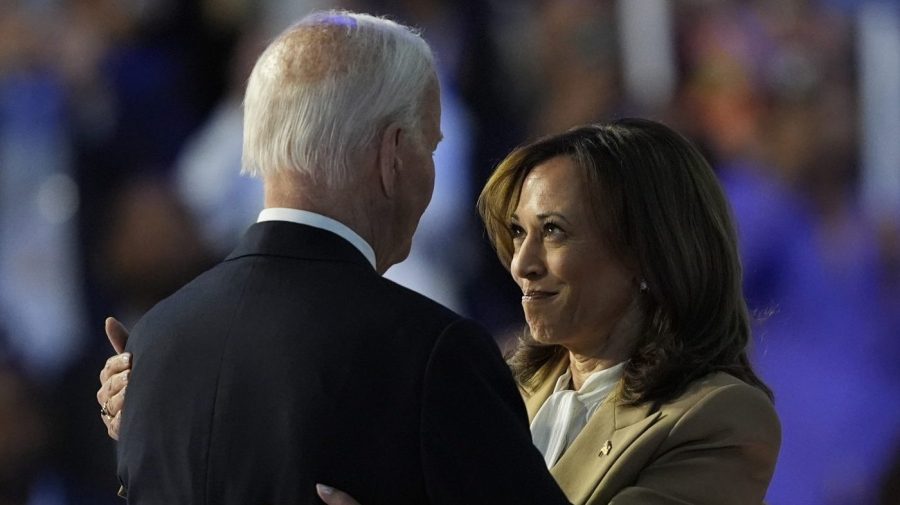
As Democrats debate their next steps and Vice President Kamala Harris contemplates her political future, a fundamental question arises: Did Harris ever truly have a chance to win?
Increasingly, it seems that the answer is no.
This conclusion begins with Harris’s own ill-fated 2019 presidential campaign, which left the impression that she was an excessively liberal spewer of word salad — a perception that persisted through her vice presidency. Tasked with politically fraught assignments like addressing “the root causes of migration in Central America,” Harris was set up to fail, and her time as veep did little to counter her bad first impression.
Under normal circumstances, Harris might have had the opportunity to rebrand herself through a robust, full-length primary campaign, sharpening her messages and earning respect and legitimacy by securing her party’s nomination — or a superior candidate would have emerged as the Democratic nominee.
Instead, President Biden’s decision to seek reelection drastically shortened that window, leaving Harris with little time to redefine her record or reframe her positions. Worse, she inherited much of Biden’s political baggage — issues so significant and acutely felt they may have been insurmountable.
A recent J.L. Partners poll conducted for the Daily Mail highlights the steep hill Harris had to climb. Inflation and the cost of living, exacerbated by Biden’s policies and downplayed by his administration, ranked as voters’ top concern, prioritized by 18 percent of voters.
According to the survey, border security and immigration — policies Biden also mismanaged — came in second at 12 percent. Issues that might have played to Harris’s strengths, such as leadership skills and abortion rights, lagged behind in fourth and fifth place. As I told Rob Crilly of the Daily Mail, “That’s the campaign right there in a nutshell.”
Could Harris have reshaped these dynamics? In theory, yes. Successful campaigns often mitigate weaknesses and elevate favorable issues to the forefront of voters’ minds. In the biz, this is called “framing the debate” and “staying on message,” and it can sometimes work.
But Harris was a political candidate, not a magician, and she faced a near-impossible task: convincing voters to reprioritize deeply personal concerns like inflation and border security in a matter of months.
Inflation, in particular, creates a toxic sense of daily frustration that is difficult to counter with rhetoric or quick policy fixes. What’s more, inflation disproportionately affects voters traditionally thought to be part of the Democratic base, including women (who might care about abortion rights, but also still do the bulk of grocery shopping) and minorities (low-income households are disproportionately hurt by inflation).
Certainly, Harris could have done more to distance herself from Biden’s missteps — her bungled answer on “The View” about whether she would have done anything different from Biden was a glaring missed opportunity. She might also have more clearly addressed her policy evolution, clarifying her shifts on issues like fracking and decriminalizing border crossings. Yet these moves carried risks of their own, potentially angering Biden and alienating progressive voters while still failing to satisfy skeptics.
Moreover, this approach amounts to playing on the opponent’s turf. Conventional political wisdom is clear: If you’re explaining, you’re losing; if you’re talking about an issue that hurts your opponent, you’re winning. This is to say, instead of getting bogged down defending issues that skew against you, the smarter move is to parry those questions and pivot aggressively to the terrain where you hold the advantage. That’s the theory, at least. (Note: Trump himself eschews this conventional wisdom and, I suspect, others will follow his lead.)
Not to sound naive, but there was a time when it appeared that such jockeying might be altogether unnecessary. When Harris first emerged as the Democratic nominee this summer, she appeared to represent stark contrast: a fresh faced 59-year old amid two recycled, polarizing figures. Her identity and status as a historic candidate — an identity that was obvious, even if she downplayed it — offered a compelling “change” narrative.
At the time, it seemed plausible that the “old vs. new” contrast would swamp the “inflation/border vs. abortion/democracy” debate. But hindsight reveals that the excitement masked a grim reality: The race may have been unwinnable from the start.
Biden’s early mistakes as president — on spending, executive orders on the border, the chaotic Afghanistan withdrawal, etc. — tanked his approval ratings. Add in his decision to cling to power rather than passing the torch and the environment was ripe for Trump’s reelection. Based on the context and limited time Harris had, no amount of “distancing” from Biden would have been sufficient. The vice president, already fighting uphill, was left to shoulder the blame for circumstances largely outside her control.
This is not to absolve Harris of responsibility. Her campaign was far from flawless, and she has yet to prove she deserves another chance on the national stage. But it’s clear now that the 2024 race was effectively decided long before voters went to the polls. Given the hand she was dealt, it’s hard to see what Harris could have done differently to change the outcome.
Trump is back, and for that we can largely thank Biden.
Matt K. Lewis is a columnist, podcaster and author of the books “Too Dumb to Fail” and “Filthy Rich Politicians.”












